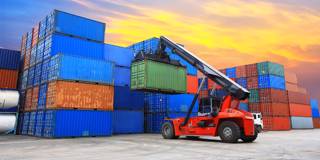As 2013 comes to a close, efforts to revive growth in the world’s most influential economies are exerting competing pressures on the global economy. Perhaps not surprisingly, while Europe and the US will continue to play an important global role, developments in Asia will determine the worldwide outlook in 2014 and beyond.
NEW YORK – As 2013 comes to a close, efforts to revive growth in the world’s most influential economies – with the exception of the eurozone – are having a beneficial effect worldwide. All of the looming problems for the global economy are political in character.
After 25 years of stagnation, Japan is attempting to reinvigorate its economy by engaging in quantitative easing on an unprecedented scale. It is a risky experiment: faster growth could drive up interest rates, making debt-servicing costs unsustainable. But Prime Minister Shinzo Abe would rather take that risk than condemn Japan to a slow death. And, judging from the public’s enthusiastic support, so would ordinary Japanese.
By contrast, the European Union is heading toward the type of long-lasting stagnation from which Japan is desperate to escape. The stakes are high: Nation-states can survive a lost decade or more; but the EU, an incomplete association of nation-states, could easily be destroyed by it.

NEW YORK – As 2013 comes to a close, efforts to revive growth in the world’s most influential economies – with the exception of the eurozone – are having a beneficial effect worldwide. All of the looming problems for the global economy are political in character.
After 25 years of stagnation, Japan is attempting to reinvigorate its economy by engaging in quantitative easing on an unprecedented scale. It is a risky experiment: faster growth could drive up interest rates, making debt-servicing costs unsustainable. But Prime Minister Shinzo Abe would rather take that risk than condemn Japan to a slow death. And, judging from the public’s enthusiastic support, so would ordinary Japanese.
By contrast, the European Union is heading toward the type of long-lasting stagnation from which Japan is desperate to escape. The stakes are high: Nation-states can survive a lost decade or more; but the EU, an incomplete association of nation-states, could easily be destroyed by it.